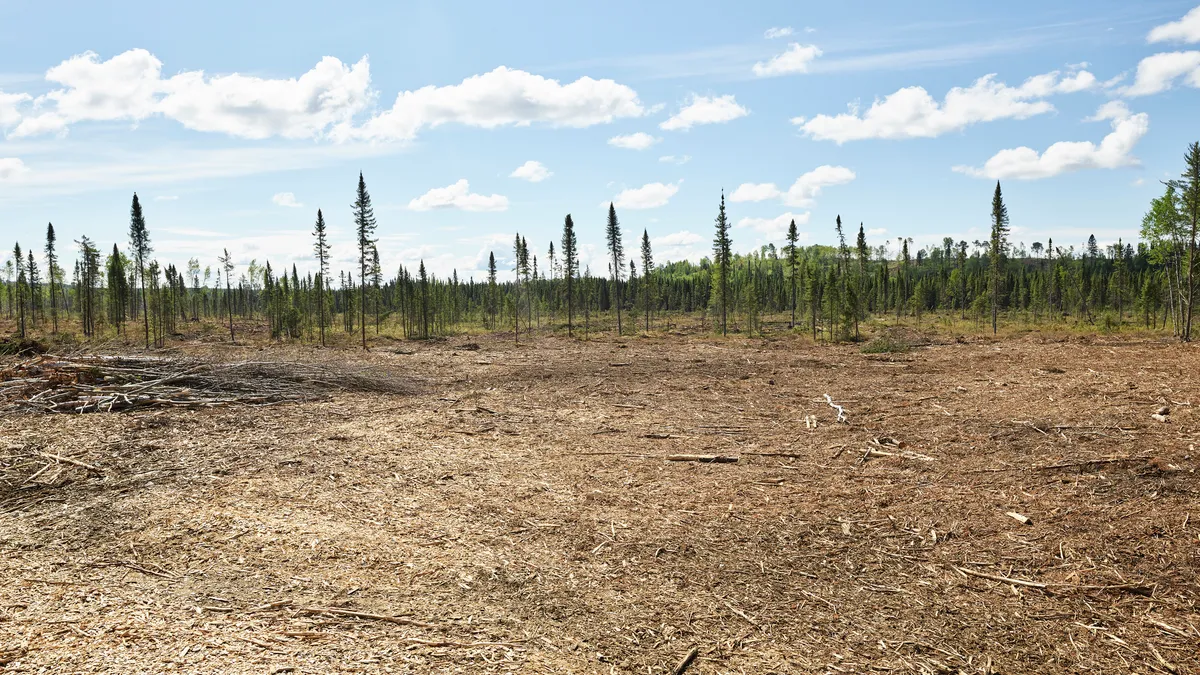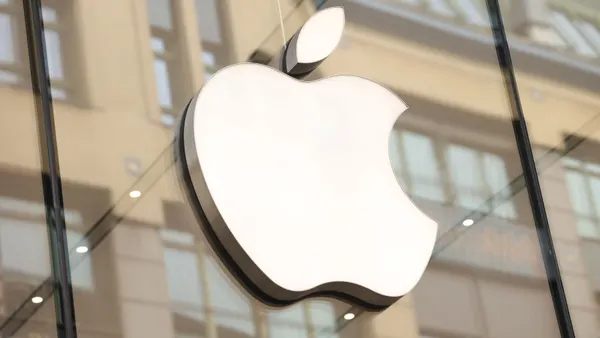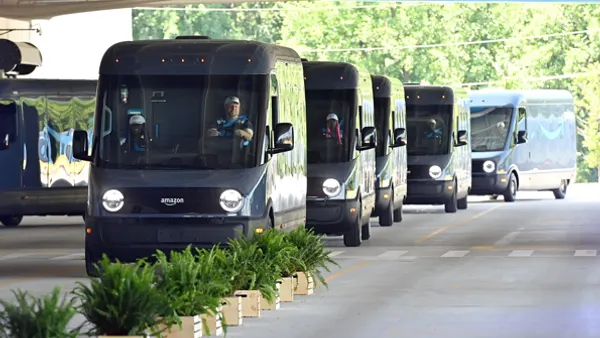Dive Brief:
- Major toilet paper producers continue to use nearly all virgin fiber to produce their household paper products, demonstrating little progress toward more sustainable options such as recycled and alternative fibers, according to the Natural Resources Defense Council's (NRDC) "The Issue with Tissue" report released Wednesday. The report is a follow-up to a publication NRDC released in February 2019.
- Georgia-Pacific, Kimberly-Clark and Procter & Gamble brands all received a grade of "F' in NRDC's scorecard, indicating their paper products (toilet paper, paper towels and facial tissue) contain 100% virgin fiber, the minority of which had received relevant certifications to indicate more sustainable practices.
- Kimberly-Clark is the only of the three largest toilet paper producers to commit to reducing virgin pulp sourcing. A company spokesperson told Supply Chain Dive it committed to reducing the use of virgin wood fiber from natural forests in tissue products by 50% by 2025 through the use of recycled fiber, FSC-certified plantation-grown fibers and sustainable alternative non-wood fibers. In North America, recycled fiber represents more than 30% of the total fiber used by Kimberly-Clark for tissue manufacturing, according to the spokesperson.
Dive Insight:
Due to the pandemic, the fiber sourcing market is getting a shake-up. In the first half of 2020, tissue demand has shifted from commercial to consumer markets as communal spaces like shopping malls offices and airports have been either closed or dipped drastically below capacity and consumers spend more time at home.
Commercial products more often contain recycled or alternative fibers due to a lower expectation of softness, which comes from virgin fiber. Consumer products, as NRDC found, often contain 100% virgin fiber.
Multiple paper products companies told Supply Chain Dive the pandemic rush of demand for retail toilet paper has not led to a tightening of pulp supply, but the share of recycled content in total paper products produced and sold in 2020 may decrease in aggregate. Furthermore, the reduced activity in offices may restrict supply of recycled fiber.
Procurement professionals in the industry will need to be aware of these shifts, while also catering to their individual company's sustainability goals. As consumer demand for sustainable products grows, which NRDC noted increasingly includes toilet paper, procurement officers are charged with delivering on these demands.
At the heart of NRDC's discontent with the paper products industry is a fundamental disagreement about the sustainability of cutting trees for commercial purposes. The organization purports that cutting trees in the Boreal Forest in Canada to make wood pulp for paper products endangers animal life, infringes on Indigenous Peoples and negatively contributes to climate change.
Companies producing toilet paper and other paper products argue that virgin fiber is what gives these products softness and is, therefore, an important element in consumer products. They also argue this can be done in a sustainable way. Furthermore, a Canadian forestry industry group, the Forest Products Association of Canada, argues that fiber is already made from a waste product since wood pulp is a by-product of the lumber industry.
The Rainforest Alliance and Forest Stewardship Council (FSC) certifications are intended to recognize companies that source from "responsibly managed forests." Procter & Gamble and Kimberly-Clark include some certified pulp in their consumer retail toilet paper products while Georgia-Pacific does not, according to the NRDC report.
"We’ve always been careful in the way we source and use natural resources," a Georgia-Pacific spokesperson told Supply Chain Dive, who added that the company has a long relationship with NRDC. FSC has improved standards since its last report, said NRDC.
But giving some merit to the FSC certification, NRDC argues that no virgin wood pulp sourcing can be considered responsible or sustainable.
The organization has also not yet given a score to companies sourcing bamboo fiber, which grows much faster than the trees cut for wood pulp, and is growing in availability and consumer awareness through direct-to-consumer players like Who Gives A Crap, Seedling by Grove, and Caboo.
"Bamboo is grown as a crop intended for sale and is not a residue material or byproduct like wheat straw," the report reads. "Growing bamboo can create its own negative environmental impacts, especially if it is grown on cleared forestland."














